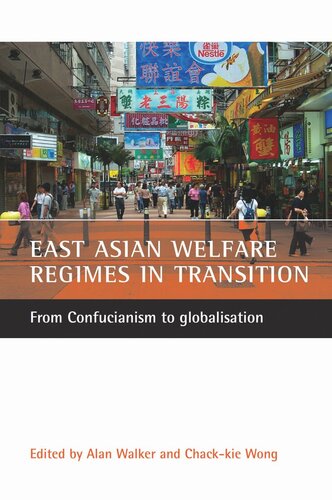

Most ebook files are in PDF format, so you can easily read them using various software such as Foxit Reader or directly on the Google Chrome browser.
Some ebook files are released by publishers in other formats such as .awz, .mobi, .epub, .fb2, etc. You may need to install specific software to read these formats on mobile/PC, such as Calibre.
Please read the tutorial at this link: https://ebookbell.com/faq
We offer FREE conversion to the popular formats you request; however, this may take some time. Therefore, right after payment, please email us, and we will try to provide the service as quickly as possible.
For some exceptional file formats or broken links (if any), please refrain from opening any disputes. Instead, email us first, and we will try to assist within a maximum of 6 hours.
EbookBell Team

4.4
102 reviewsEastern welfare systems have largely been neglected by Western social policy. There is very little information in the West about their operation and the differences between them. Yet, as China and South-East Asia emerge as a major regional economic block, it is vital to understand the social models that are in operation there and how they are developing. This book puts the spotlight on the Chinese and South-East Asian welfare systems, providing an up-to-date assessment of their character and development. In particular it examines the underlying assumptions of these systems and how the processes of globalisation are impacting on them. As well as specific country case studies, there is a valuable comparative analysis of Eastern and Western welfare states. The book provides a unique insight into the main South-East Asian welfare systems written by experts living and working within them. It focuses on 'Confucianism' and globalisation to provide an account of tradition and change within the South-East Asian cultural context. Eastern welfare states in transition will be essential reading for students of social policy requiring an understanding of non-Western welfare systems. Policy makers and practitioners who are interested in how Eastern welfare systems are adapting to globalisation will also find it an important read.